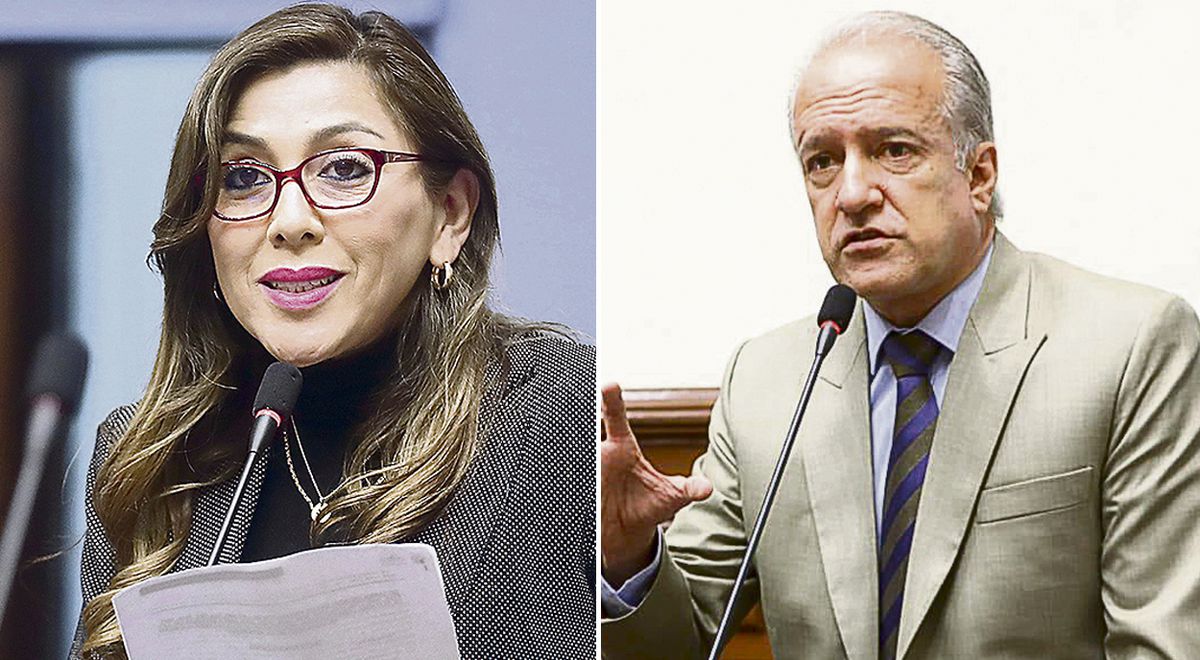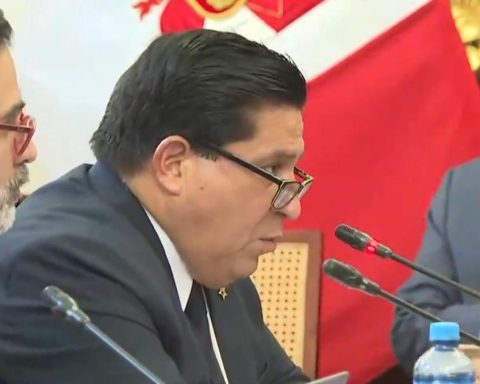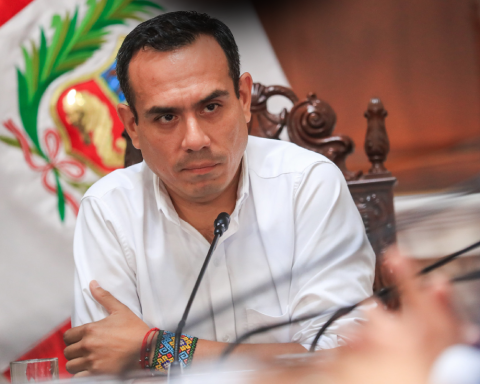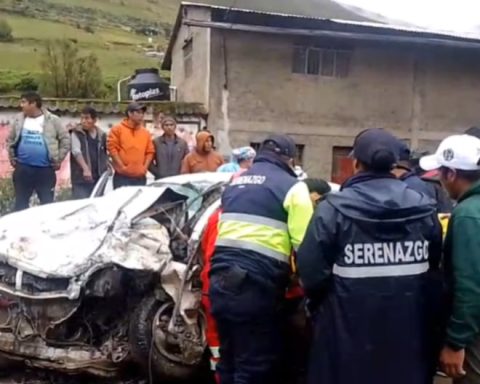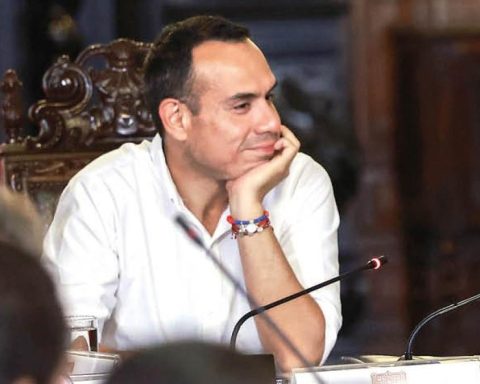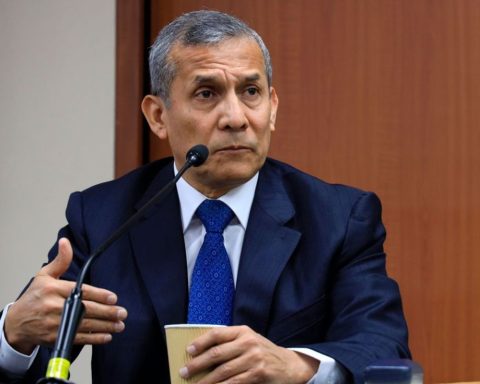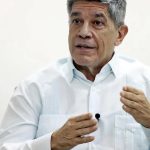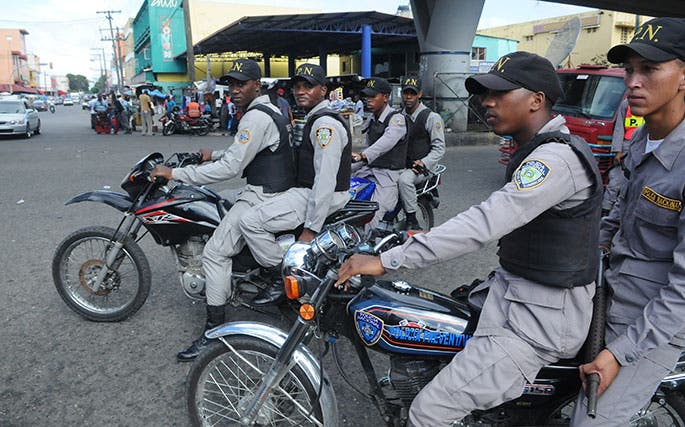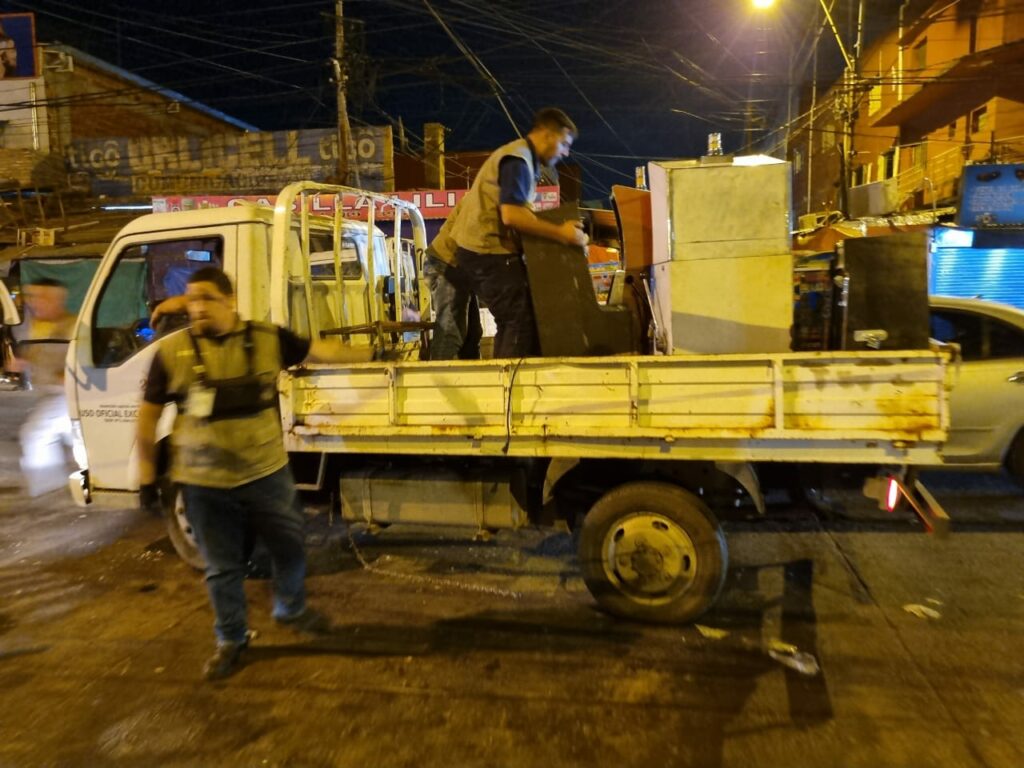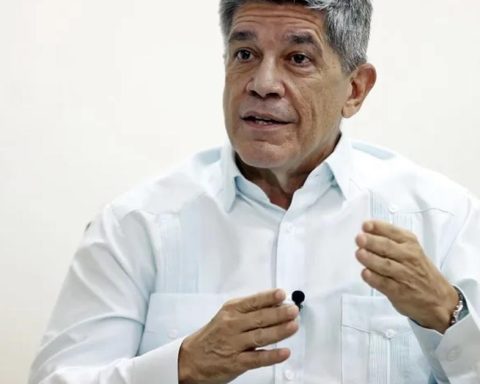After the precautionary measure granted by the Constitutional Court (TC) to block a possible closure of Congresslegislators have chosen to speed up a series of parliamentary procedures (regulatory and political control), in order to hasten the departure of President Pedro Castillo.
This Friday, the Subcommittee on Constitutional Accusations, chaired by Lady Camones (Alliance for Progress), hastened the vote for the origin of a combo of four new complaints against Castillo, this time for having assumed the first question of confidence as denied.
The first complaint that entered Congress for this case corresponds to the citizen Jorge Lazarte and was assumed by legislator Patricia Chirinos (Avanza País) to facilitate its origin. This is complaint number 318.
The other three complaints on the same issue of trust are authored by congressmen Patricia Chirinos (322), Adriana Tudela (324) and Juan Burgos (325).
SAC President Lady Camones (APP), has decided to act with special speed in addressing these complaints. For this reason, he called an extraordinary session for this Friday, in the middle of the week of representation.
Five parliamentarians simply did not attend yesterday’s session, as they chose to request a license, to carry out representation activities; in addition to Heidy Juárez, who is officially licensed, for having assumed the position of Minister of Women.
The four new complaints against Pedro Castillo were only processed between November 23 and 28. And in barely a week, Lady Camones was in charge of presenting the qualification report yesterday to vote on the provenance.
There were 14 congressmen who voted in favor, from the Alianza para el Progreso, Acción Popular, Avanza País, Fuerza Popular, Integridad y Desarrollo and Renovación Popular (see details in the table).
What can be the outcome of this new onslaught from Congress? Patricia Chirinos, in her constitutional complaint, proposes as a sanction for Pedro Castillo the “removal of public service for 10 years”.
vacancy motion
In parallel, the Congress advances with the third vacancy motion and, for the moment, there is an agreement to meet on December 7 (also in the middle of the week of representation), to hear the president’s defense and go to the final vote: to remove Pedro Castillo, 87 votes are needed.
The president, however, yesterday returned the motion to Congressconsidering that the documentation was incomplete.
Castillo notes that vacancy motion 4904 has been sent without including a total of fourteen pieces of evidence.
Among the documents that would be missing, he cites the minutes of the declaration of the effective collaborator 03-2022 and 04-2022. Also report 068-2022 of the Special Team of Prosecutors against Corruption. Likewise, the seven projects that the official Auner Vásquez Fernández would have delivered to Bruno Pacheco.
The author and promoter of the third vacancy motion, Edward Málaga, responded immediately, noting that the documents requested by Castillo are not part of the list of annexes.
cheating suspension
But the attack against the Executive does not only occur with direct acts of political control (vacancy, disqualification or dismissal), but there is also a process of changing the current rules to have another card up your sleeve: suspension.
Hernando Guerra (Popular Force) convened a session of the Constitution Commission for last Thursday (in the middle of the week of representation). It was then that they approved the modification of the regulations of Congress to be able to suspend Castillo with only 66 votes. This must now be ratified in plenary.
This modification has two points of controversy. On the one hand, there is the reduction of the fence to get Castillo out. Since in two vacancy processes they did not reach 87 votes, now they would choose to set only 66 votes to suspend it.
The suspension of the president, under article 114 of the Constitution, was never applied. Therefore, there is also no regulation on the number of votes. Congress seeks to take advantage of this vacuum to establish a low fence to achieve the same objective: remove Castillo.
The second controversy occurs in the interpretation that Congress intends to make of paragraph 1 of article 114 of the Constitution. This rule establishes that the president can be suspended for “temporary incapacity of the president, declared by Congress.”
After approval of the opinion, Hernando Guerra explained that a cause could be a disease, but added that the definition of the causes is defined by the congressmen. “The plenary can say: he does not have physical capacity, he cannot reason…, there are many causes,” he commented.
In this regard, the constitutional lawyer José Naupari considered it necessary to limit the grounds for a presidential suspension well in law.
On the other hand, he described as very disproportionate to include the regulation suspension for up to 36 months.
“They could suspend the president and the vice president for 36 months and thus they would not be obliged to call general elections,” he questioned.
The key complaints against President Pedro Castillo
Pedro Castillo faces more than twenty constitutional complaints filed in the Subcommittee on Constitutional Accusations (SAC).
Fifteen correspond to citizens. One of them, for example, was presented by the citizen Marco Cruz and yesterday it was declared inadmissible.
In this group is the complaint for treason filed by Fernán Altuve, Lourdes Flores and other lawyers They did not accept the result of the elections.
This complaint returned to the subcommittee for its review, after the TC left without ground the content of the final report that had the support of Lady Camones herself.
Another key complaint is the one filed by the nation’s prosecutor, Patricia Benavides, for alleged cases of corruption. The subcommittee appointed Milagros Jáuregui (Popular Renewal) as head of the investigation and drafting of the final report.
In good account, the complaints that have attracted the special attention of Lady Camones to speed up their procedures are the one formulated by the prosecutor Patricia Benavides and the new block of complaints for the case of the first question of trust.
Infographic – The Republic
